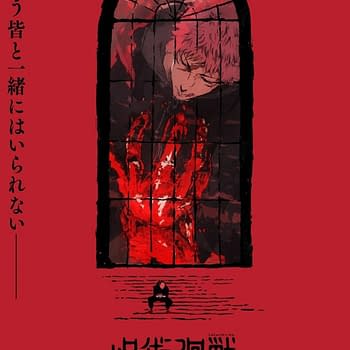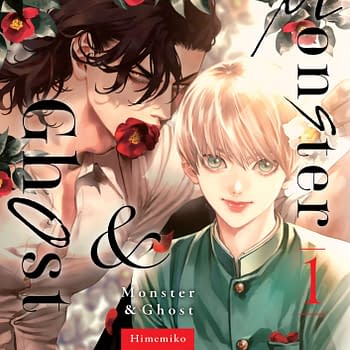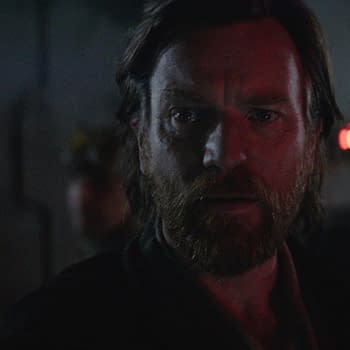Posted in: Film Festival, Movies | Tagged:
NYAFF 2018: 'The Looming Storm' and 'Wrath of Silence': Two Blasts of Chinese Noir [Review]
Apart from cheesy blockbusters and slapstick comedies, China is seeing a renaissance in crime noir movies. The New York Asian Film Festival has two of the latest entries in the genre that share common themes of bleak times in times of social and economic upheaval.
The Looming Storm
![NYAFF 2018: 'The Looming Storm' and 'Wrath of Silence': Two Blasts of Chinese Noir [Review]](https://mlpnk72yciwc.i.optimole.com/cqhiHLc.IIZS~2ef73/w:600/h:400/q:75/https://bleedingcool.com/wp-content/uploads/2018/07/THE-LOOMING-STORM-STILL-17.jpg)
The Looming Storm, cinematographer Dong Yue's first feature, is one of the bleakest movies of the year. Yu Guowei comes out of prison in 2008 and returns to his dying factory town to look back at the circumstances that put him away for 10 years.
It's 1997, a period when China was on the cusp of change: Hong Kong was about to get handed back, Deng Xiaopeng passed away, underperforming factories across the country were about to be closed across the country as China prepares to undergo massive social and economic change into the global player it is today. The endless rain seems to be expression of the town's declining fortunes and overall despair as police investigate a series of murders. Yu, the Head of Security at the factory, believes the serial killer is local and eagerly plays amateur sleuth, hoping that cracking the case could earn him some social advancement. He may be a big shot at the factory, but the cops barely tolerate his presence.
Yu dreams of a better life, as does the good-hearted prostitute he starts a relationship with who dreams of opening a hair salon in Hong Kong. His ego, however, is the riding force as he lays a plan to trap the serial killer that involves using her as bait. Then everything goes wrong, and he doesn't even realise the downward spiral he's jumped on until it's far too late.
![NYAFF 2018: 'The Looming Storm' and 'Wrath of Silence': Two Blasts of Chinese Noir [Review]](https://mlpnk72yciwc.i.optimole.com/cqhiHLc.IIZS~2ef73/w:600/h:400/q:75/https://bleedingcool.com/wp-content/uploads/2018/07/THE-LOOMING-STORM-STILL-33.jpg)
The town is the biggest character in the story, its unending rain bathing everything in grey, brown, and mud like an unending hell of despair and violence. By the end, Yu may not be what he seemed or thought he was, but like the town, he's one of China's forgotten, abandoned in the wake of massive change.
Wrath of Silence
![NYAFF 2018: 'The Looming Storm' and 'Wrath of Silence': Two Blasts of Chinese Noir [Review]](https://mlpnk72yciwc.i.optimole.com/cqhiHLc.IIZS~2ef73/w:600/h:342/q:75/https://bleedingcool.com/wp-content/uploads/2018/07/Wrath_of_Silence-_SONG_Yang_as_ZHANG_Baoming_4.jpg)
Wrath of Silence is visually the opposite of The Looming Storm, but no less bleak. Set in the sun-blasted, wide open landscapes of Northern China, it follows a mute miner searching for his missing son. This pits him against a corrupt tycoon who has bought up the local mine, and the miner, a hot-headed street brawler, uses the only things he has: his fists. Wuxia star Song Yang plays the miner as a simmering ball of rage exploding against the immovable slag of capitalist exploitation played by Jiang Wu with an air of arrogant, implacable oiliness.
![NYAFF 2018: 'The Looming Storm' and 'Wrath of Silence': Two Blasts of Chinese Noir [Review]](https://mlpnk72yciwc.i.optimole.com/cqhiHLc.IIZS~2ef73/w:600/h:338/q:75/https://bleedingcool.com/wp-content/uploads/2018/07/Wrath_of_Silence-_SONG_Yang_as_ZHANG_Baoming_5.jpg)
As the miner and the millionaire square off, the miner stumbles upon the kidnapped daughter of a corrupted lawyer the millionaire is trying to blackmail. The movie becomes a chase as the miner tries to hide the daughter from the millionaire's goons while the lawyer desperately tries to catch up, and everything comes to a head in the mountains.
Visual metaphors abound: sheep as symbols of slaughtered innocents. The imagery references Westerns as much as noir with the mountain frontier landscapes and shots of bodies moving across mountains and caves. There are touches of surrealism and grim humour to offset the oppressiveness of the story, like a little boy in an Ultraman mask observing adults being morally flawed and the miner having trouble starting his motorcycle, undercutting his attempts to look cool and intimidating.
The social commentary about land grabs, corrupt tycoons, and exploited workers are all in keeping with China's official anti-corruption campaigns. Censorship demands that crime is always punished, and this story doesn't have a happy ending. Murders can't be undone, the dead stay dead, and nobody gets what they want.
![NYAFF 2018: 'The Looming Storm' and 'Wrath of Silence': Two Blasts of Chinese Noir [Review]](https://mlpnk72yciwc.i.optimole.com/cqhiHLc.IIZS~2ef73/w:600/h:338/q:75/https://bleedingcool.com/wp-content/uploads/2018/07/Wrath_of_Silence-_JIANG_Wu_as_CHANG_Wannian_4_.jpg.jpg)
At two hours, both movies are too long, especially given how bleak they are, but they create a morally bleak world you feel you might drown in. What's interesting is the way Chinese Cinema now uses noir as a vehicle to deliver political and social commentary in the most dynamic and immediate way possible, following slightly different rules from those that American and European movies stick to. Subtlety is not on the menu here, moral outrage is — and as long as inequality and strife continue, Chinese noir is not going to run out of material anytime soon.














